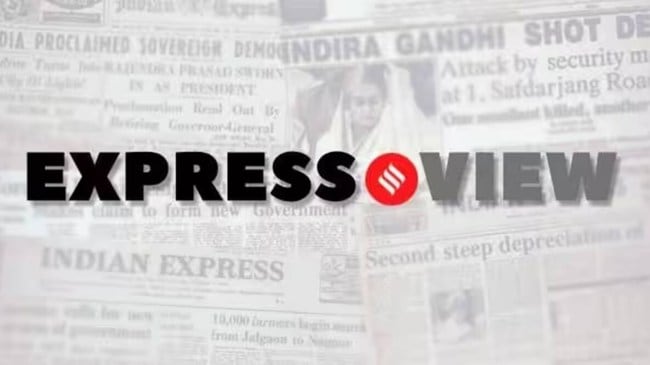Opinion Rhea Chakraborty is owed a public apology
The death of Sushant Singh Rajput should have been a moment to initiate conversations about mental health and the importance of support systems in an industry driven by uncertainties and insecurities. Instead, the trial of Chakraborty became a cautionary tale about the perils of media excess
 It invites a moment of pause, at least, and actually an honest reckoning, from all those who participated in it.
It invites a moment of pause, at least, and actually an honest reckoning, from all those who participated in it. The CBI report terming the untimely death of actor Sushant Singh Rajput in June 2020 a “case of suicide” brings closure, even if belatedly, for his family, friends and fans. Rajput’s death, however, was only the beginning of another story. This was a larger tale of abdication and irresponsibility, and complicit in it were individuals, institutions, society. Reportage and investigation of a tragedy spiralled into a noisy spectacle that was not about truth and justice but about vilification and TRP-hunting, feeding an appetite for sensationalism. Now the CBI’s quiet exoneration of the actor’s partner at the time of his death, Rhea Chakraborty, and her family, in the closure report, is not merely an indictment of all those complicit in their relentless hounding. It is also a warning about the clear and present dangers of TV anchors playing judge, jury and executioner, and of witch-hunting overtaking due process.
In the aftermath of Rajput’s death, FIRs were filed against Chakraborty and her family on charges of abetment to suicide, criminal intimidation and money laundering by Rajput’s family as well as by investigating agencies. Chakraborty, an actor and V J, was arrested by the Narcotics Control Bureau and spent nearly a month in prison. The NCB accused Chakraborty and her brother of coordinating drug deliveries for the late actor. In the flurry of allegations, rumours and speculation, the presumption of innocence — the bedrock of any legal system — was overturned in favour of a baying for blood by a TV-led mob. Evidence took a backseat to online hashtags, outright prurience and conspiracy theories. The circus was fed by people from the film industry in Mumbai, fuelled by a ruling establishment looking to consolidate its hold over the entertainment industry, magnified by TRP-hungry news outlets, whose incursions into the private lives of Chakraborty and her family turned them into fodder for a frenzy that sought to keep the public entertained at the expense of their suffering. A nation watched as Chakraborty, a young woman already grappling with grief and personal loss, was thrust in the eye of a storm on national television that violated her right to privacy, dignity, and a fair trial.
In 2008, the murder of a teenager and the family’s domestic help in the national capital had highlighted how a media trial can render a tragedy into a sideshow. The death of Rajput, a bright young actor, should have been a moment to initiate conversations about mental health and the importance of support systems in an industry driven by uncertainties and insecurities. Instead, the trial of Chakraborty became a cautionary tale about the perils of media excess. It invites a moment of pause, at least, and actually an honest reckoning, from all those who participated in it. A public apology would be a good start.






